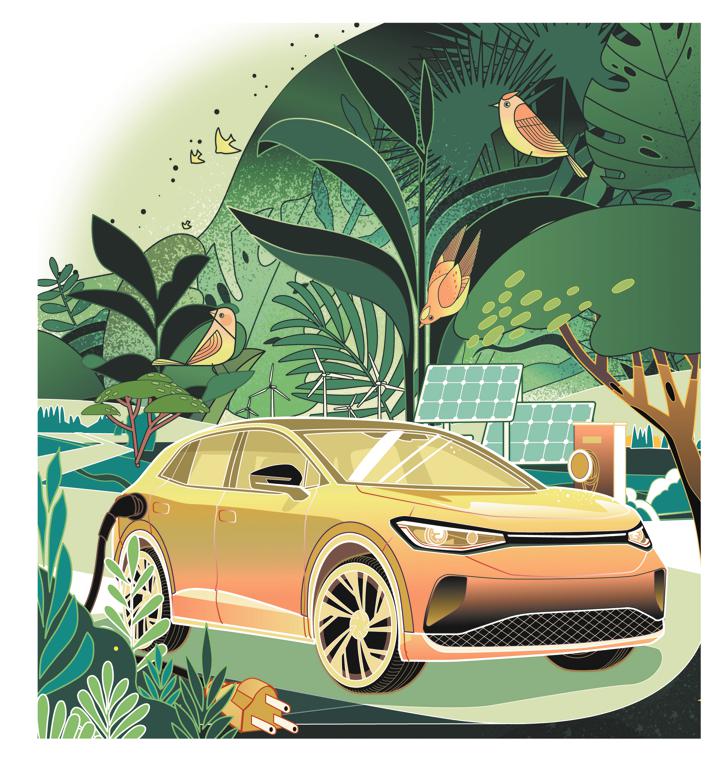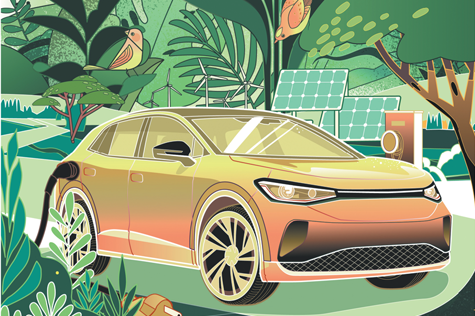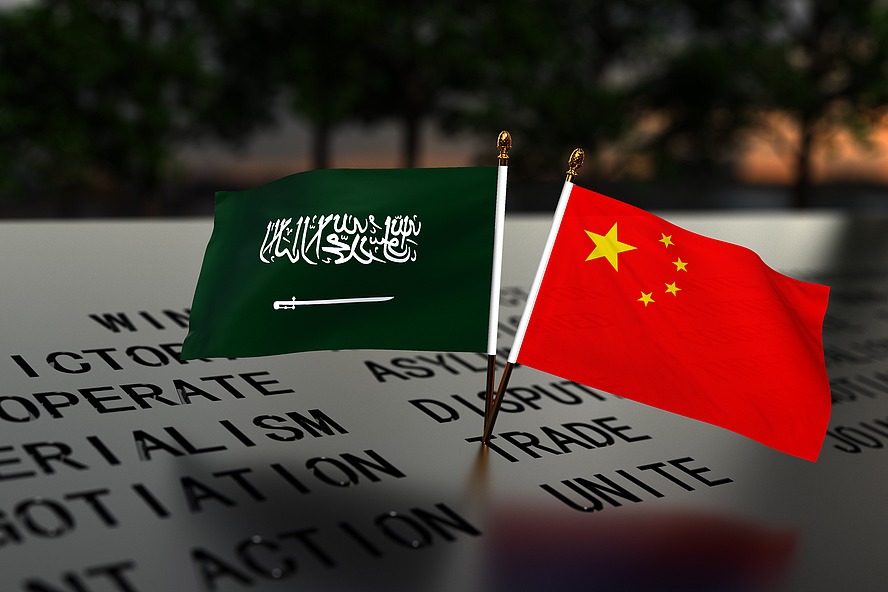US tariffs propel global clean energy shift


China and the rest of the world have been presented with an enormous economic opportunity by the United States' so-called One Big Beautiful Bill Act. US tariffs have already increased the costs of many imported low-carbon goods in the US. Now, the new act, signed into law on US Independence Day on July 4, will further harm the market for many clean energy goods by removing tax credits, most likely leading to greater dependence on fossil fuels and increased damage to the climate.
This will create more challenges for clean energy producers and consumers in the US, likely affecting exporters, particularly those that export their products.
But more interestingly, the new act is likely to put China further ahead of the US in the global race to capitalize on the rapidly growing market for clean energy technologies. Strategically, the task ahead is to identify how this shift can be used to triple the production of renewable energy the world needs by 2030, one of the key climate goals we need to achieve this decade.
China and the US are the biggest investors in large-scale electricity storage, with the two sides, along with Europe, accounting for more than 90 percent of global spending on electricity storage. But the new act may signal a cooling off for electricity storage companies in the US, giving China a decisive edge in the field.
Any reduction in the export of clean energy technologies from China to the US is likely to be offset by the increase in exports to other countries. China already exports more solar photovoltaic panels to developing countries than to advanced economies.
Chinese electric vehicle (EV) manufacturers, too, are looking at international markets, where they can offer a clean, competitive alternative to cars powered by gasoline. Chinese EV and battery manufacturers have announced they would invest huge amounts to establish and expand their manufacturing capacities in major foreign markets, including Indonesia, Thailand, Brazil, Mexico and Turkiye.
Besides, more than 17 million EVs were sold worldwide last year, meaning more than one in every five new vehicles sold worldwide was an EV. China accounts for more than 70 percent of the global EV production, primarily meeting the demand at home. Also, the global market for EVs increased by 20 percent last year, with China exporting almost 1.25 million EVs, or about 40 percent of the global total, in 2024.
The production of solar panels in China reached a record high in March 2025. Measured by value, 44 percent of Chinese-made solar panel exports were destined for emerging market economies and developing countries in 2023. Many emerging market economies and developing countries imported record levels of Chinese solar power technology in 2024.
This gives rise to a burning question: How do governments and businesses across the world benefit from China's advancement in clean energy?
This is an acute issue for strategic sectors, from EVs to renewables. To resolve it, a new generation of joint ventures is needed, joint ventures that are mutually beneficial to manufacturers in China and those across Africa, Asia, Europe and Latin America.
There is now a major opportunity to deconcentrate clean energy supply chains, which will attract more investments, make them more resilient and strengthen economic security.
Moreover, global partnerships are needed to strengthen environmental and social safeguards in clean energy goods trade. In this regard, the Solar Stewardship Initiative, which has several leading Chinese producers as members, recently released a list of comprehensive standards to address environmental, social and governance issues.
Furthermore, the huge decline in the prices of Chinese-made solar panels and wind turbines since 2022 could especially benefit African countries. Africa currently accounts for just 2 percent of the global investment in clean energy, with countries like Nigeria witnessing a significant increase in imports of clean energy tools from China over the past few years, albeit the increase is on a low base.
As the world looks forward to the United Nations Climate Change Conference in Belém, Brazil, in November, a major challenge the international community faces is to show how China's leading position in the global clean energy market can contribute to Africa's green industrialization, and create new jobs and business opportunities across the globe.
Indeed, the spectacular growth of the global clean energy technology market because of China's massive investments in the sector can help erase the gloom arising from the abandonment of climate leadership by the US.
Nick Robins is chair of the Just Transition Finance Lab at the Grantham Research Institute on Climate Change and the Environment at the London School of Economics and Political Science; and Bob Ward is policy and communications director of the same institute. The views don't necessarily reflect those of China Daily.
If you have a specific expertise, or would like to share your thought about our stories, then send us your writings at opinion@chinadaily.com.cn, and comment@chinadaily.com.cn.



































